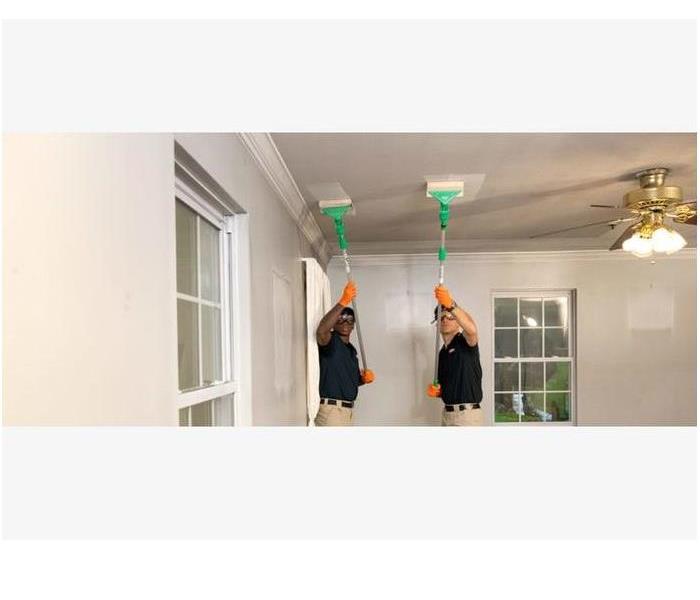Heater Puffbacks, Oil heater, Gas Furnace, Cause, Prevention of Puffbacks on Boilers, Furnaces, Soot Damage in NJ
9/16/2020 (Permalink)
 Heater Puffbacks, Oil heater, Gas Furnace, Cause, Prevention of Puffbacks on Boilers, Furnaces, Soot Damage in NJ
Heater Puffbacks, Oil heater, Gas Furnace, Cause, Prevention of Puffbacks on Boilers, Furnaces, Soot Damage in NJ
Heater Puffbacks, Oil heater, Gas Furnace, Cause, Prevention of Puffbacks on Boilers, Furnaces, Soot Damage in NJ
Oil burner puffbacks, sooting, explosions: what is an oil burner "puffback"? What causes sooty puffbacks on oil fired boilers, furnaces, water heaters? Why are puffbacks dangerous? How do you detect, diagnose, and prevent boiler or furnace puffbacks? How soot build-up causes higher heating costs on oil fired heaters. Why is soot build-up potentially dangerous on heating equipment? Do faulty boilers cause puffbacks or is it faulty maintenance? Can a faulty chimney cause an oil burner puffback?
What Causes Sooty Puffbacks at Oil-Fired Heating Boilers, Furnaces, Water Heaters?
Here we explain the oil burner or oil heating system puffbacks: what happens, and what causes them.
Watch out: if the reset button on your heating equipment has popped, you might press it ONCE to see if the equipment will run and provide heat (or hot water) while you wait for repair service. But do not keep pressing the button repeatedly, as doing so, particularly if the burner does not run for 10 minutes or more, risks a dangerous puffback explosion when un-burned fuel in the heater finally ignites - causing a puffback explosion.
Definition of heating system puffback: a puffback at oil fired heating equipment is literally an explosion of un-burned oil in the combustion chamber of an oil-fired boiler, furnace, or water heater.
Depending on the quantity of oil that is ignited, the puffback can damage the boiler itself, and may cause the flue vent connector (stackpipe) to become disconnected, and may blow soot throughout the building.
The cause of this puffback explosion is the ignition of un-burned oil lying on or in the bottom of the heating appliance combustion chamber.
The strength of a puffback explosion and the extent of its effect on the building can vary widely depending first on the quantity of oil that is ignited, and second on a longer list of variables such as heater type, design, condition, materials, building construction, spaces, doorways, ductwork, etc.
The most common causes of the presence of this un-burned heating oil fuel are various sources of improper oil burner operation that leaves incompletely-burned heating oil at the end of one or more on-off cycles of the oil burner. These include:
- To atomize and burn heating oil, the oil burner's fuel unit compresses incoming heating oil to 100 psi or more.
- Because any extra air in the heating oil piping is also compressed to high pressures (often more than 100 psi) during oil burner operation, any air bubbles present in the system when the oil burner stops its run cycle is exposed to a pressure drop inside the system.
- The 100 psi air bubble expands, pushing additional un-burned heating oil out of the end of the oil burner nozzle and into the combustion chamber where it may accumulate until, in a dramatic "BANG!" the unburned oil is ignited at the beginning of a future oil burner on-cycle.
- Oil burner shutdown problems: Incomplete heating oil combustion may also occur if the "shut-down" phase of oil burner operation is not working properly. Inside of the fuel unit of most oil burners is a spring-loaded valve whose job is to quickly and securely stop oil flowing to the oil burner nozzle the moment that the oil burner's fuel unit RPM's begin to slow - when the oil burner is turning "off" at the end of a burn cycle.
- Even a small amount of dirt on the seat of this oil valve can cause it to leak oil into the combustion chamber instead of making a clean oil-flow shutoff.
- Poor oil burner maintenance: if an oil burner is running poorly, for example with a dirty oil spray nozzle that has become partly blocked, the result is a poor flame and possibly incomplete combustion of the heating oil being sprayed into the fire chamber. This, too, can lead to accumulation of un-burned heating oil and a subsequent ignition and puffback.
Before a catastrophic puffback occurs, most heating equipment will give plenty of warning in the form of heating oil or combustion gas odors and soot in the building.
If you see black soot and debris on top of your boiler, furnace, or water heater, or black soot stains in the boiler room, furnace room, or living area, the cause could be a poorly-operating heating system that needs prompt attention.
As Veteran Owned and Operated, SERVPRO of Blackwood and Gloucester Township NJ, offers free estimates for Soot damage in NJ, Heater Soot damage in NJ, Heater Puffback smoke in NJ, Fire damage in NJ, Smoke damage in NJ, Flood damage in NJ, Flood cleaning in NJ, Covid 19 Cleaning in Blackwood NJ, Water damage restoration in Blackwood NJ, Fire Damage in Blackwood NJ, Mold remediation in Blackwood NJ, Biohazard cleaning in Blackwood NJ, Crime Scene cleaning in Blackwood NJ
Phone: 8562277800
****Veteran Owned and Operated
Have Questions? Call Us Today – (856) 227-7800
Jon BarrettMarketing Manager
SERVPRO of Blackwood/Gloucester Twp
Phone: (856) 227-7800
Email: sp.jonb@gmail.com
Website: https://www.SERVPROblackwoodgl...
****Veteran Owned and Operated





 24/7 Emergency Service
24/7 Emergency Service